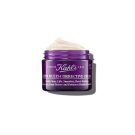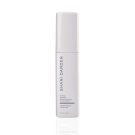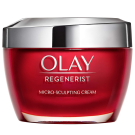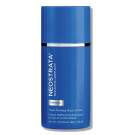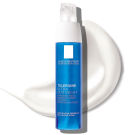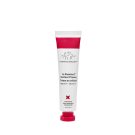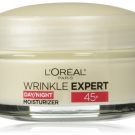Top 10 Best Anti-Aging Face Serums in 2024
What Are Anti-Aging Face and Eye Serums?
Anti-aging serums are skincare products designed to target and reduce the visible signs of aging on the skin. These serums typically contain a concentrated blend of active ingredients that work together to address specific concerns such as wrinkles, fine lines, uneven skin tone, and loss of firmness. While the specific formulation may vary depending on the brand and product, here are some common ingredients found in anti-aging serums:
- Retinoids: Retinoids, such as retinol or retinaldehyde, are derivatives of vitamin A. They help to stimulate collagen production, reduce the appearance of fine lines and wrinkles, and improve overall skin texture.
- Peptides: Peptides are short chains of amino acids that can help boost collagen synthesis and promote skin elasticity. They can also help to reduce the appearance of wrinkles and improve skin firmness.
- Hyaluronic Acid: Hyaluronic acid is a hydrating ingredient that can hold a significant amount of water, helping to plump the skin and minimize the appearance of fine lines and wrinkles.
- Vitamin C: Vitamin C is an antioxidant that helps to protect the skin from free radical damage caused by environmental factors. It can also brighten the complexion, even out skin tone, and stimulate collagen production.
- Antioxidants: Other antioxidants like green tea extract, vitamin E, or resveratrol may be included in anti-aging serums to further protect the skin from oxidative stress and help maintain a youthful appearance.
- Alpha Hydroxy Acids (AHAs): AHAs, such as glycolic acid or lactic acid, can help exfoliate the skin, improve skin texture, and promote cellular turnover, resulting in a smoother and more youthful complexion.
- Niacinamide: Niacinamide, also known as vitamin B3, has multiple benefits for the skin. It can help improve the skin’s barrier function, reduce the appearance of wrinkles, and even out skin tone.
It’s important to note that individual results may vary, and it’s recommended to choose an anti-aging serum based on your specific skin concerns and needs. Additionally, it’s advisable to perform a patch test before using a new product and consult with a dermatologist or skincare professional if you have any specific skin conditions or sensitivities.
What Are The Benefits Of Anti Aging Face Serums?
Anti-aging serums are potent skincare products designed to address various signs of aging and improve the overall appearance and health of the skin. Here are some of the key benefits of using anti-aging serums:
- Reduces Fine Lines and Wrinkles: Many anti-aging serums contain active ingredients like retinol, peptides, and vitamin C, which stimulate collagen production and help to smooth out fine lines and wrinkles. Regular use can lead to a more youthful and plump appearance.
- Improves Skin Firmness and Elasticity: Anti-aging serums with collagen-boosting ingredients help improve the skin’s elasticity, making it feel firmer and more supple.
- Hydrates and Nourishes the Skin: These serums often contain moisturizing ingredients that help hydrate the skin and strengthen the skin barrier, preventing moisture loss and maintaining a smooth, healthy complexion.
- Evens Skin Tone: Anti-aging serums with ingredients like vitamin C, niacinamide, or alpha hydroxy acids (AHAs) can help fade dark spots, hyperpigmentation, and age spots, resulting in a more even skin tone.
- Brightens the Complexion: By promoting cell turnover and exfoliating dead skin cells, anti-aging serums can reveal brighter and fresher-looking skin.
- Protects Against Environmental Damage: Some anti-aging serums contain antioxidants, such as vitamin C and vitamin E, which help protect the skin from free radicals and environmental damage caused by UV rays and pollution.
- Reduces Under-Eye Circles and Puffiness: Certain anti-aging serums target specific concerns like under-eye circles and puffiness, helping to improve the appearance of the delicate skin around the eyes.
- Minimizes the Appearance of Pores: Some serums contain ingredients that can help reduce the appearance of enlarged pores, giving the skin a smoother and more refined look.
- Fast Absorption and Lightweight Formulas: Serums typically have a lightweight and fast-absorbing texture, allowing the active ingredients to penetrate deeply into the skin for maximum effectiveness.
- Complements Other Skincare Products: Anti-aging serums can be easily incorporated into existing skincare routines and can complement other products like moisturizers and sunscreens.
It’s important to choose an anti-aging serum that matches your skin type and addresses your specific concerns. Additionally, due to the potency of some active ingredients, it’s essential to introduce new serums gradually to prevent irritation, and it’s recommended to do a patch test before applying to your entire face. For the best results, consistency is key, so use the serum as directed and incorporate it into your daily skincare routine. If you have any skin conditions or concerns, it’s advisable to consult a dermatologist before starting any new skincare product.
How We Graded Each Anti-Aging Face Serum
The grading of anti-aging serums can vary depending on the criteria used and the source providing the evaluation. Here are a few common factors that are often considered when grading or evaluating anti-aging serums:
- Effectiveness: The primary factor in grading anti-aging serums is their effectiveness in addressing the visible signs of aging. This includes assessing their ability to reduce wrinkles, fine lines, and other signs of aging, as well as their overall impact on improving skin texture, tone, and firmness. Clinical studies, customer reviews, and before-and-after photos may be used to evaluate the effectiveness of a product.
- Ingredients: The quality and selection of ingredients play a significant role in determining the grade of an anti-aging serum. High-quality products often contain scientifically backed ingredients, such as retinoids, peptides, hyaluronic acid, and antioxidants, in optimal concentrations. The presence of potentially harmful or irritating ingredients may negatively impact the grade.
- Safety: Safety is another crucial aspect in grading anti-aging serums. The absence of harmful ingredients, allergens, or irritants is essential. Additionally, the product’s formulation, stability, and potential side effects are considered when assessing its safety profile.
- Packaging and Preservation: Proper packaging and preservation techniques are essential to maintain the efficacy of active ingredients. Anti-aging serums may be evaluated based on their ability to protect the product from degradation caused by light, air, or contamination. The packaging should also be practical and hygienic for user convenience.
- User Experience: User feedback and satisfaction play a role in grading anti-aging serums. Positive customer reviews, testimonials, and overall user experience can contribute to a higher grade. Factors like texture, scent, absorption, and compatibility with different skin types may influence user satisfaction.
It’s important to note that grading or evaluating anti-aging serums is subjective, and different sources may have varying opinions. It’s advisable to consider multiple factors and reviews from reputable sources when making decisions about skincare products.
Our Top 10 Recommended Anti-Aging Face & Eye Serums
Frequently Asked Questions About Anti-Aging Face Serums
What is anti-aging?
Anti-aging refers to the practices, products, and techniques aimed at slowing down the aging process, minimizing the appearance of aging signs, and promoting overall well-being.
Are there any effective anti-aging treatments?
Yes, several treatments have shown effectiveness in reducing signs of aging. These include topical creams with retinol, hyaluronic acid fillers, laser treatments, and chemical peels, among others.
Can diet affect the aging process?
Yes, a healthy diet rich in antioxidants, vitamins, and minerals can contribute to a youthful appearance and overall health. Foods like fruits, vegetables, whole grains, lean proteins, and healthy fats can support healthy aging.
Does sunscreen help prevent aging?
Yes, regular use of sunscreen with a high SPF (Sun Protection Factor) can help protect the skin from harmful UV radiation, preventing sun damage and slowing down the development of wrinkles and age spots.
Is exercise important for anti-aging?
Absolutely! Regular physical activity can improve circulation, reduce inflammation, boost collagen production, and enhance overall well-being, all of which contribute to a more youthful appearance.
Can stress accelerate the aging process?
Yes, chronic stress can lead to accelerated aging. It affects the body at a cellular level and may cause premature wrinkles, reduced skin elasticity, and other signs of aging. Stress management techniques can help counteract this effect.
What role does sleep play in anti-aging?
Sufficient, quality sleep is essential for the body’s rejuvenation and repair processes. Lack of sleep can contribute to the development of fine lines, dark circles, and a tired-looking complexion.
Are there any anti-aging supplements that work?
Some supplements, such as collagen peptides, coenzyme Q10, and certain antioxidants, may support healthy aging. However, it’s best to consult with a healthcare professional before starting any new supplement regimen.
Can smoking accelerate the aging process?
Yes, smoking is known to speed up the aging process. It can cause premature wrinkles, dull skin, and a leathery texture. Quitting smoking can help improve the skin’s appearance and overall health.
What are some natural remedies for anti-aging?
Natural remedies for anti-aging include practices like regular exercise, a healthy diet, staying hydrated, getting enough sleep, managing stress, using natural skincare products, and avoiding excessive sun exposure.
Please note that while these answers provide general information, individual results may vary. It’s always advisable to consult with a healthcare professional or dermatologist for personalized advice regarding anti-aging practices and treatments.
